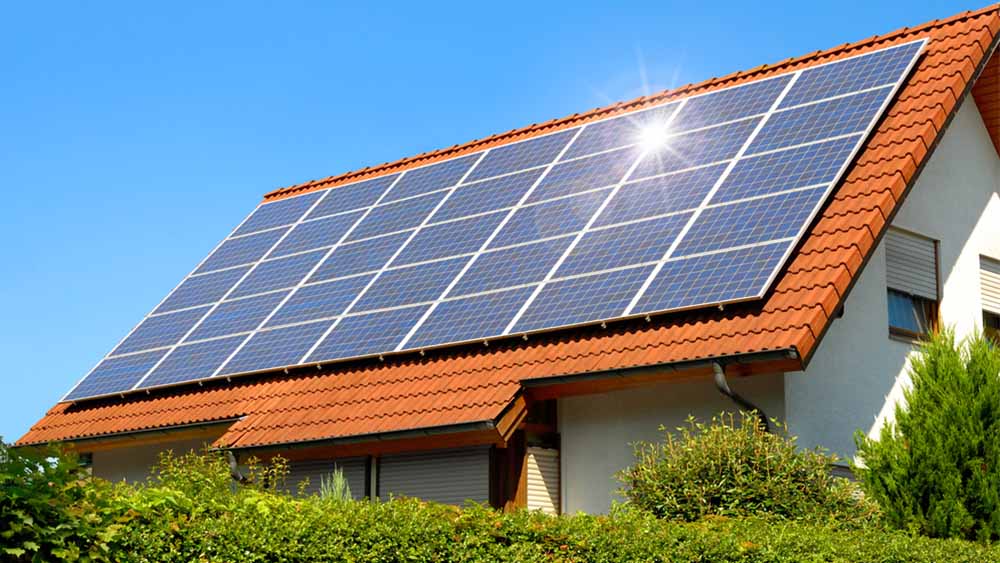The only things that set them apart from one another are the source of their energy and the transformation they undergo. It is possible for a solar cooling system to cut the amount of energy required to power an air conditioner by as much as fifty percent in a home, depending on the local climate.
-
What Is The Principle Behind Solar Air Conditioners?
Solar air conditioners obtain their power from specialized solar panels rather than the traditional source of electricity from the utility company. Taking advantage of the sun’s free energy throughout the day and switching to electricity from the grid at night is made possible thanks to this setup. Solar air conditioners, despite the large initial investment, have minimal operating expenses and can save a significant amount of money over the course of their lifetime. The installation of solar air condition is very technical, for air conditioner installation in Singapore, call the professional nearby you for this task.
-
Primary Parts That Make Up a Solar Air Conditioner:
- Solar collectors: It is recommended that you install at least four solar energy panels on your roof in order to generate enough electricity to power the air conditioning unit during the day. These panels perform their functions in a manner that is analogous to that of conventional solar panels; however, their sole purpose is to supply energy for the cooling system in your home.
- The Outdoor Hybrid Unit: Wireless communication is maintained with the unit inside, the solar panels, and the power grid by this component. During the day, it may run on the direct current (DC) electricity that is generated by the panels, and at night, it can use the alternating current (AC) that is supplied by the grid.
- A DC power supply for use indoors: The interior unit is capable of acting as either a heater or a cooler thanks to the solar panels’ ability to generate DC electricity. It will turn on automatically when there is sufficient solar power, and it will switch off when there is not sufficient solar power.
-
When Does Solar Electricity Allow For Air Conditioning?
Solar air conditioners, similar to other solar-powered home goods, have the potential to make use of the sun’s energy anytime when it is accessible. When solar power is not available, the cooling systems will transform to using conventional electricity through the grid rather than using solar power. This indicates that the air conditioner is going to operate on solar power during the day and then switch to utilizing electricity via the grid as night falls.
Throughout the day, the solar power will be used to power the system. On the other hand, the air conditioners might switch back to using main electricity on days when there is insufficient solar energy generated, such as days with very cloudy skies. You do not need to worry about whether or not your air conditioner powered by solar energy will work well when the time comes for you to connect it to the public power grid.
However, if you want to reduce the amount of electricity that it pulls from the mains supply, you may take use of the energy that the sun provides by modifying the way that you run your cooling system or by placing a battery that stores any excess power that it generates.
-
How Do Solar-Powered Air Conditioners work:
When you have already converted some of the other devices in your house to run on solar energy, you might be wondering if you still need to install more panels for powering the air conditioning system.
The good news is that you do not require a complex system in order to operate the air conditioner. If you want to use solar energy to power the air conditioning and the other equipment in your home, you are going to have to make sure that the system you have is large enough.
-
Size of Your Solar Energy System Depends On:
- How Much Electricity You Use Every Day: The larger the system, the greater amount of energy you will need to store. A 9-kilowatt solar array may generate about 35 kilowatt-hours per day on average. However, make sure you get a system that’s big enough to meet your energy demands. Your prior electricity invoices will have your daily average energy consumption listed in kilowatt hours.
- When you are Exerting The Most Effort: This will affect how much solar energy and how much electricity from the grid you will need to run your air conditioner. For instance, if you find that you use almost all of your energy at night, you might want to think about buying a battery powered by the sun to store the extra power you generate during the day.
- Your home’s dimensions and layout: The total quantity of solar panels that you require is related to both the quantity of available roof space and the amount of sunshine that space receives. For instance, if the roof is partially shaded, you might need a few extra solar panel to make up for the ones that are not getting enough light. In a similar vein, you may require more solar panels if the majority of your roof’s available space faces south rather than north the ideal orientation for solar panels.
How Much Money You Plan On Saving: By not using as much electricity from the mains. The amount of energy you wish to conserve will also play a role in determining the optimal size of your solar power system. For instance, a bigger solar system and a battery is necessary for practically complete independence, while a smaller system is sufficient for covering daytime energy needs. Talking to a solar vendor is the best approach to figure out what kind of solar installation might work for you.

